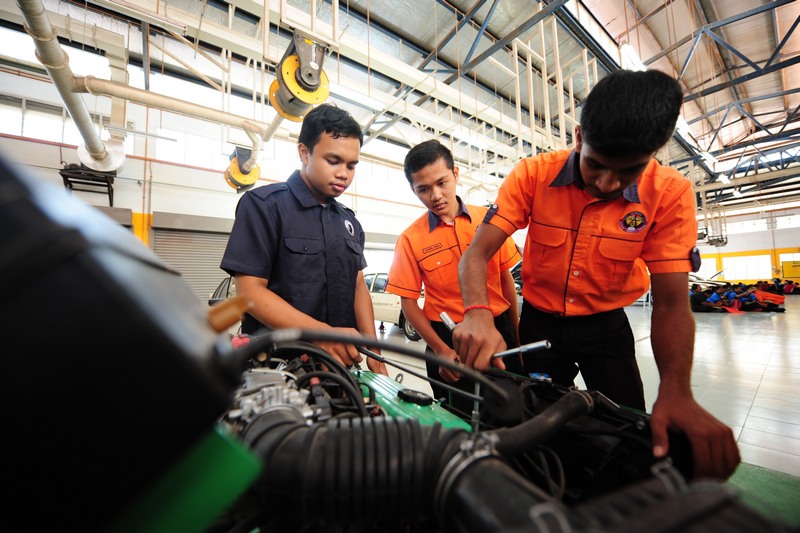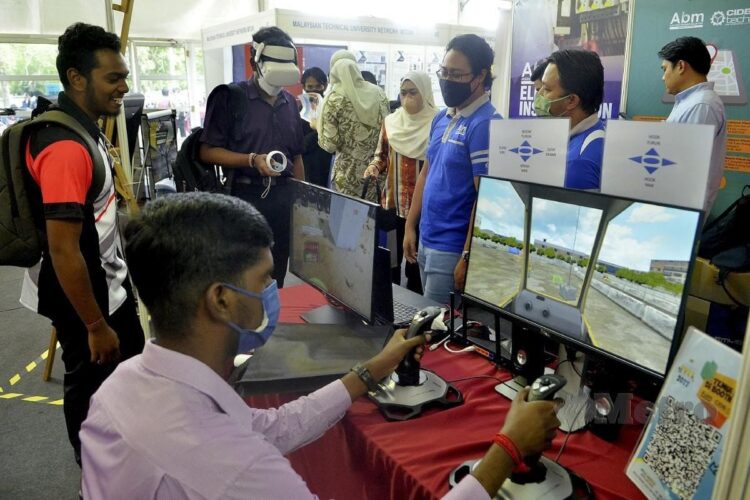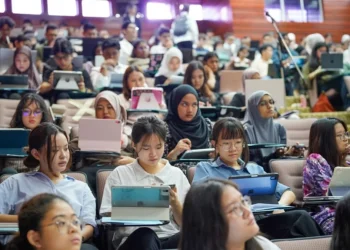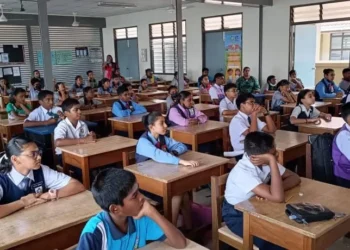Technical and Vocational Education and Training(TVET) in Malaysia plays a crucial role in the nation’s efforts to enhance workforce skills and promote economic development. The Malaysian government has consistently invested in TVET programs to address the evolving demands of the job market and industry needs. The government is encouraged to institute a mandatory policy requiring industries, encompassing both small and medium enterprises (SMEs), to actively engage in the recruitment of TVET students for their industrial training placements.
This imperative proposal emphasizes the necessity of a systematic approach to integrate TVET students into professional environments, fostering a symbiotic relationship between academic learning and practical application. This measure not only serves to provide students with invaluable hands-on experience but also establishes a pivotal bridge between educational institutions and industries. Yayasan Mahir Malaysia president, Datuk Sri Ganes stressed the necessity for action, noting that there is a prevailing inclination within the industry to prefer university students over TVET students for employment opportunities.

He also emphasized that TVET students at an advanced stage are required to undertake industrial training to fulfill the practical learning component. Merely relying on theoretical knowledge and examinations is insufficient; the necessity for industrial training arises to validate their skills and capabilities.
According to Bernama, he stated, “However, as it is not mandatory, industry players prefer to hire university students. So, when will TVET students be given the opportunity?”
Datuk Sri Ganes, who is also the Chairman of SG Education Group Berhad highlighted that graduates from Technical and Vocational Education and Training(TVET), particularly those specializing in electric vehicles(EVs) and drones, exhibit superior employability compared to graduates in other domains. “The latest development in TVET, through drones and EVs, can generate high income and high-impact programmes,” he said. He characterizes TVET as an emerging force, attributing its capability to cultivate skilled workers and contribute substantially to the nation’s economic prosperity.
He also explained about the distinctive ecosystem of Electric Vehicle(EV) education. This micro-educational system has effectively nurtured a proficient workforce specializing in battery manufacturing, battery-related products, research and development, battery disposal, and the construction materials used in Electric Vehicle production.

Sri Ganes additionally suggested prioritizing skilled workers in the sector through comprehensive initiatives that incorporate reskilling and upskilling programs. These endeavors are indispensable in enhancing expertise specifically in Electric Vehicles(EVs) and drones, fostering a resilient foundation for the continuous development of the nation and paving the way for future achievements. The emphasis on continuous skill development not only ensures a proficient workforce in emerging technologies but also contributes significantly to the sustained growth and competitiveness of the country in these pivotal areas of innovation.
Technical and Vocational Education and Training(TVET) stands as a crucial element in Malaysia’s pursuit of enhancing workforce skills and fostering economic growth. The government’s consistent investment in TVET programs reflects a commitment to meeting evolving market needs. Challenges persist, including industry preferences for university graduates, prompting a call for mandatory TVET student recruitment policies. Recognizing TVET as an emerging force is essential for ensuring a skilled and competitive workforce in Malaysia’s dynamic economic landscape.
Source: Bernama
Follow us on Instagram, Facebook or Telegram for more updates and breaking news.








